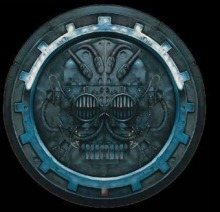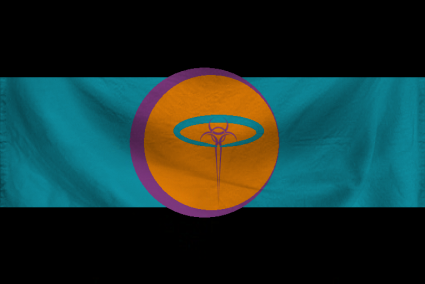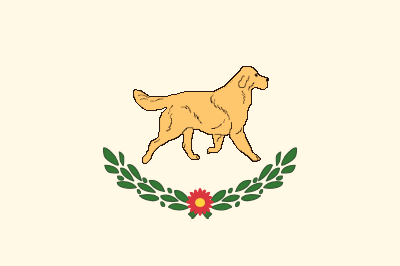December 8th, 20 AG
The road to the border was paved diffidently, by the standards of the south - flat planed flagstones intermixed with cobbles worn smooth on either side of the wagon tracks, patches of pure cold earth here and there peeking through the snow - but it didn't slow our cavalcade unduly. The sturdy Hessians had enough mountain pony in their blood not to mind the fresh white powder that was drifting down diffidently through the air, and enough Highland draft to shoulder through the drifts without a complaint. They wouldn't surge to the sound of trumpets, trained more to heed the actions of their riders, but they could give a man on their shoulders a lead of days on any pursuing force, and that was enough. I wouldn't have wanted to walk the road barely visible beneath the drifting snow but the destrier beneath me knew exactly where to place its hooves, a fact for which I was most grateful.
As I was grateful for the thick cloak about my shoulders, a padded affair of thick woven wool braced by a decorative layer of thick black wolf pelt that was remarkably warm even in the depths of winter that were approaching languidly. Even the greatcoat needed a supplement in these conditions, and the woven scarf around my face was most welcome in driving back the sporadic gusts of icy breeze which wuthered here and there as we crossed the Eider. the sound of hooves on stone was replaced, for the most part, by the creaking of immense timbers, interspersed still as the shod hooves of our steeds met the pilings of the crossing here at Tharinsford.
On either side rose the earth ramparts of the Danevirke, and even at this hour lights could be seen moving upon the wall of rammed soil. It was more formidable than I had thought it might be, the height standing perhaps twice that of a man. It wouldn't take long to climb over for a lightly shod scout or outrider, but heavy infantry would struggle to mount the slope, certainly - a defensive advantage to any standing atop her watches. The smell of wet and must would certainly be formidable in the wetter seasons, and I did not envy those men that would have been entrusted with preventing erosion from filling the Eider with the remains of the ramparts. But that was their concern, not mine. Mine stood directly ahead of us, where the fortress of Skessugarður stood looming over the southernmost piercing in the defensive line.
Torches flickered there, guttering feebly against the dark December wind. In their light though a small party, perhaps half a dozen men, was visible standing before the great oaken doors which barred passage through the Danevirke. The squat citadel rose scarcely higher than the wall she pierced, a testament to the sheer labor that was necessary to raise such edifices, but her frowning battlements would have given most armies pause anyway - most of all because even a mediocre bowman could reach the center of the bridge behind us from those battlements, rendering any attempt to ford or seize the passages of the Eider a dubious affair.
Exactly, yes, exactly why were here.
As our cloaked figures approached, one of my men rode ahead of the small column, speaking in unaccented Norse. Many of those in the party understood it, of course - our sister tongue was a matter of study for those with a desire to understand the currents of Europe, and, moreover, scarce removed from Common, aside from some colloquialisms and pronunciations. His conversation with those waiting at the midnight hour was short, but productive. Heads nodded nearly invisibly beneath hoods, and at a barked word from one of the shadowy forms the great gates creaked open with the sound of rattling chains.
Under the passageway we road, the light of the pallid moon flitting between the clouds exchanged for the greasy light of torches and two braziers. A small shiver of apprehension ran up my spine at the scenario we currently stood within, but that was merely the paranoid part of my brain talking. After dismounting at some stables beyond the great gate, the men walked over and greeted us with mannerisms which were, all things considered, friendly enough - if brusque on account of the cold. Some of the faces were known to me, some not, but we all hurried in out of the frigid night with understandable alacrity.
The burnished iron-banded fir at my back was most welcome indeed, as was the flush of heat from the roaring hearth within the common room of the magistrate of Tharinsford. I nodded politely to the black-haired warrior seated behind his crudely fashioned desk, and then busied myself doffing the gloves and scarf with which I had adorned myself for the journey, handing the thick cloak to a servant which appeared nearly unnoticed from an alcove nearby.
"Messir Anders. Messir Fremur. Hegemon. I thank you for meeting with me."
I had meant to speak first, to thank the magistrate for his hospitality - but Magnus had never been a man content to let matters ebb and flow beyond his control. I stamped my feet for a few brief moments as the two other men muttered greetings as well, restoring circulation to the heavily socked feet beneath my thick cured boots, then addressed the master of the fortress.
"We are the ones who should be thanking you, Master Fremjur. A respite from the winter cold is most welcome, in whatever form it comes in, and to have a matter of personal interest added to that warmth? Such a gift is rare indeed."
Nicety, yes, but appreciated nonetheless. It was a delicate political dance which we would have to do here, of that I was certain, as was the agent which had first brought news of Magnus'... indecision. The Northlands were a volatile place these days, with a dozen factions baying in far more directions, and yet some manner of decorum had to be observed. Honor, fealty, those were two values the Norse still valued, perhaps even more than those of the south, for our method of governance placed more responsibility with the system than the individual.
"Your words are kind, Hegemon. Please, take seats - we may be here some time." The servant had produced several cushioned chairs that had been placed clustered close about the desk where the warlord sat, and I dutifully made my way over to the vestibules, alongside the other local men from across the border.
"You understand the reason why I asked you here, of course. It is not a subject I feel a need to explore in great depth." A true statement indeed. Treason, such as it was, was indecorous to discuss openly - even where it would only be seen as treason by some. Beneath Magnus' dark brows I could see pain even as he did his best to school his expression, something only someone with, perhaps, my depth of time with my fellow men might have divined. To a soldier who had poured out his life for the state to which he had been beholden, even considering the reason we were here must be a matter of emotional agony, one only matched by the conviction of necessity.
"The most important matter to discuss is the reassurances I have been offered. I would not see my people punished for my actions by vengeful men, nor, of course, am I interested in what the brigands might decide an appropriate castigation for my initiative. But something must be done - and the Concerned Citizen's Committee knows this better than any. Their advice to me has been sooth, and so you are here. So now I would hear it from your own lips - what shall be done if my people turn their hands to friendship with the south."
It was not yet my time to speak. Anders leaned forward, happily detailing the forces that could be crossing the border within a week, rapid reaction elements carefully dissembled and yet in readiness for just such an eventuality. The standing armies of the Northmen who might oppose such a movement were scattered and less numerous, and, in any case, difficult to move during the depths of winter. By spring we could present the change of allegiance as a fait accompli, placing the onus for escalation on the Strothing, a body not known for action save where that action could be taken without exertion. The Northman nodded at all the right points of the commander's exposition, his eyebrows rising slightly at the numbers that were revealed; clearly, whatever the Commonwealth's intelligence apparatus was, if it knew of the consolidation near Rive, it had not yet informed the masters of the Danevirke.
"And, of course, this marches with the guarantees that we would extend under any circumstances" Anders concluded. "As a sworn son of the Imperium, your lineage will be of first consideration when the time comes for you to move on to your eternal reward, and your people warded against any retaliation on the part of the Commonwealth, whatever the cost."
The burly warrior nodded politely, though his expression said that he cared little for the talk of Christendom, likely preferring his traditional gods or the worship of ancestors which the Norse oftentimes valued. That was neither here nor there - the same could be said about most of the governors and administrators from here to the stretches of the Iron Gates, even if the verbiage of public office did not necessarily reflect that reality. As Anders concluded, I could see that Fremur was winding up for his speech, but I cut him short with a pre-emptive movement of my right hand. We had come prepared for discussions of economic advantage, which were poignant to the traderfolk of Tharinsford and her surroundings, but this was not the time.
"Most important, honored magistrate, we offer stability. The Commonwealth is in foment, the sons of the 'Eternal Revolution' pitted against the establishment, pitted against the anti-clericists, pitted against those who would have war on every front, pitted against the moderates and the CCC. Roskilde will be a churning abyss of activism, radicalism, and contradictory legislation abrogating the rights of every man for generations to come. You owe them little, and they take much. Your people could prosper beneath the banner of the Imperium far better than alone or beholden to Roskilde's twisted vision of the world, and we would, if you are amenable, see them prosper in just such a manner."
Magnus' smile was wistful, and touched with irony.
"Perhaps you speak true, Viktor Nemtsov. I know there is also the matter of the Danevirke, and your feud with those in the Commonwealth who would kill any who embrace your faith. Your concern is not only for my people - but neither should it be, for such is my charge. Even so, there is at least enough truth in your words for me, and the scales balance as you say, however you might see that balancing compared to my perspective."
The black-haired chieftain rose, and nodded formally, drawing a blade from the scabbard at his side.
"It is decided. I have decided. Speak, and I shall answer."
It was to my bodyguards' credit that they had not drawn their weapons in turn. The Oaths did not carry any swearing of blades, though perhaps whatever fealty Magnus bore to his overlords had such a component. I rose from my chair, and nodded formally in my turn, trading in my conversational voice for the leaden tones of stalwart import which was more proper for such deliberations.
"Who comes to swear the oaths?"
"I am Magnus, son of Fremjur, master of the sons of Tharinsford and the Kindred of Amaste. I come to swear the Great Oaths."
"Magnus, son of Fremjur, master of the sons of Tharinsford and the Kindred of Amaste. The oaths you come to swear are not easily discarded. They will ward you, warm you, and guide you, but all men will know of their swearing. Take counsel in your heart. I ask now, as High Arbiter of the Imperium - who comes to swear the oaths?"
"I am Magnus, son of Fremjur, master of the sons of Tharinsford and the Kindred of Amaste. I come to swear the Great Oaths."







